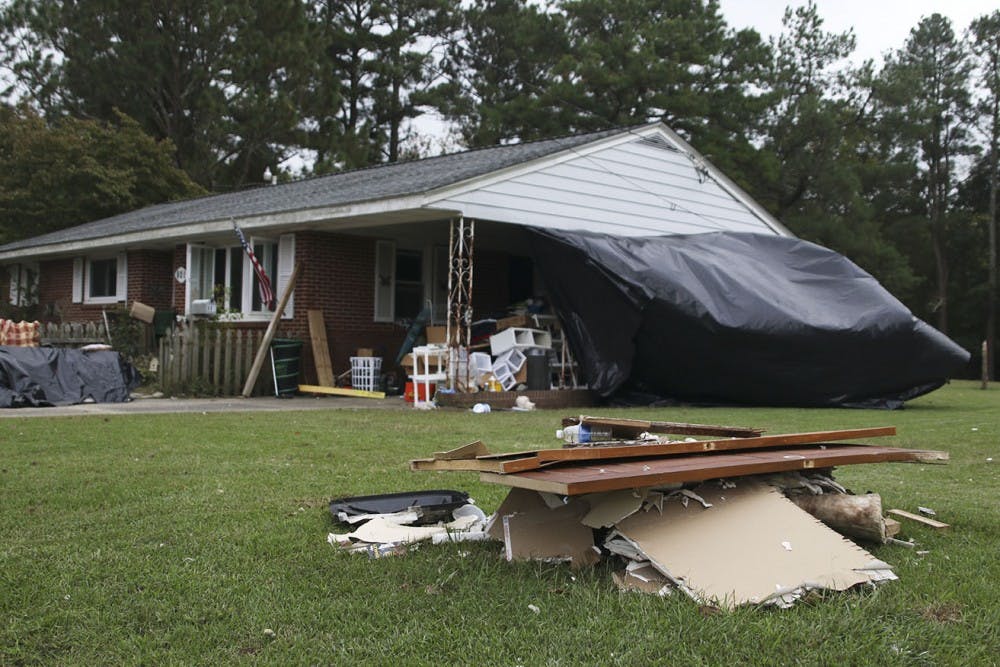The hurricane bore down on eastern North Carolina with as much as seven inches of rain per hour. The storm followed late September flooding in the area — an effect of Tropical Storm Julia.
Windsor Fire Chief Billy Smithwick said the town did not think the water would get as high as it did, damaging downtown businesses and homes.
“The good thing, if there is a good thing in this, is most of the stores or a lot of the houses were already cleaned out from two weeks ago, waiting to dry,” he said.
LuAnn Joyner, Vidant Bertie Hospital spokesperson, said the physical effects on the town will force some local businesses out because of the extensive damage.
“There’s definitely some (businesses) that simply cannot come back after this,” she said.
The rural qualities of Bertie County, where Windsor is located, compounded the effects of the flood, said Joyner. Windsor, the biggest town in Bertie County, has a population of about 3,600.
Joyner said this perspective makes the after-effects of Hurricane Matthew more detrimental.
“We are such a rural, below-poverty-level town, or county and then town, that it just adds insult to injury,” she said.



